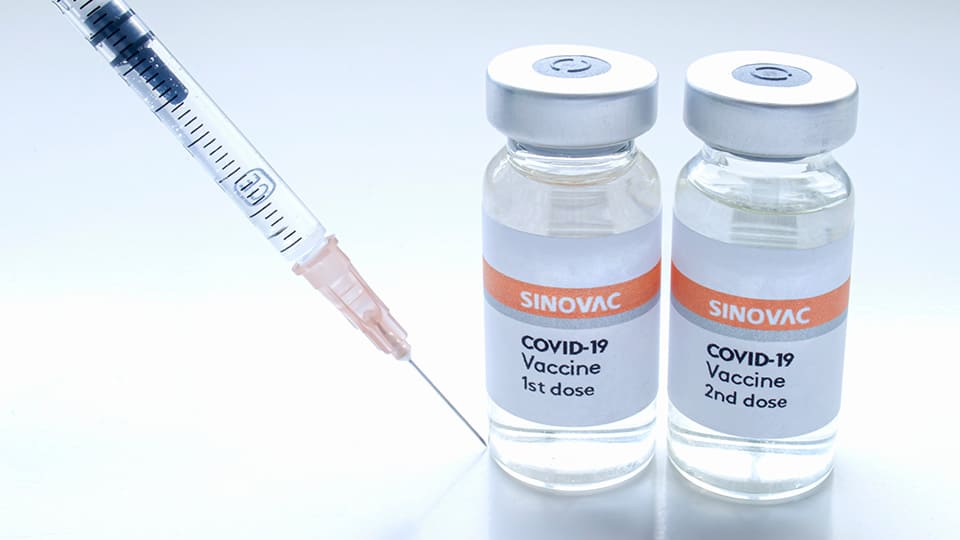Five Things to Know About the Sinovac Vaccine

Starting from 1 June 2021, the World Health Organisation (WHO) has approved the use of the Sinovac-CoronaVac COVID-19 vaccine under its Emergency-Use-Listing (EUL). This means that Sinovac vaccine has been assessed to meet international standards of safety, efficacy and manufacturing. In Singapore, the Ministry of Health (MOH) approved Sinovac for use as part of the Special Access Route (SAR). While details are still pending on how the public can access it, here are five key things you need to know about this vaccine.
#1 Like many existing vaccines, Sinovac uses an inactivated virus
Today if you enquire about COVID-19 vaccinations, you will likely be familiar with the Pfizer-BioNTech or Moderna COVID-19 vaccines, as well as the term “mRNA technology” – a new technology that is used to develop these vaccines.
For Sinovac the technology involved in developing this vaccine is different, but it has been around for over a century! It uses an inactivated form of the coronavirus to trigger your body’s immune system to respond to the virus. This technology is used in many well-known vaccines today such as the Hepatitis A and B vaccines, flu vaccine, or the HPV vaccine.
#2 The efficacy rate of Sinovac is similar to common flu vaccines
Existing studies show that the efficacy rate of Sinovac is at 51 per cent, and it prevents symptomatic disease in those vaccinated. While 51 per cent efficacy may seem lower than the other COVID-19 vaccines that have an efficacy rate of over 90 per cent, this efficacy rate is similar to existing flu vaccines. According to the USA Centres for Disease Control and Prevention (CDC), the common flu vaccine has an efficacy rate of 40 to 60 per cent at any point in time, where the prevailing flu viruses are well-matched to the flu vaccine.
#3 Studies show that Sinovac prevented hospitalisation in 100 per cent of the studied population
According to the WHO, Sinovac is recommended for use among adults aged 18 years and older via a two-dose schedule spread out across two to four weeks. Studies have shown that with the Sinovac vaccine, this has prevented severe COVID-19 and hospitalisation in 100 per cent of the studied population. This means that as a vaccine it is effective in preventing severe COVID-19 symptoms and hospitalisation for those who have been vaccinated with Sinovac.
#4 Sinovac is currently approved for use in 25 countries across the world
The Sinovac vaccine is currently approved and used in many countries around the world, most notably countries like China, Indonesia and many South American countries. According to WHO, with the approval of Sinovac on the EUL, this would bring about greater access to COVID-19 vaccines especially for developing countries to counter the pandemic.
#5 One of the key benefits of Sinovac is its ease of storage
One of the unique features of the existing mRNA COVID-19 vaccines such as Pfizer-BioNTech and Moderna is the storage requirement. These mRNA vaccines are required to be stored at deep freezer temperatures, making this a potential logistical challenge for some countries. However, for the Sinovac vaccine one of the key benefits is the ease of storage.
The Sinovac vaccine can be stored in a standard refrigerator temperature at 2 to 8°C. This is unlike the Moderna vaccine that needs to be stored at -20°C or the Pfizer vaccine at -70°C. With the ease of storage, the Sinovac vaccine will be very useful to many developing countries that might not have the infrastructure to store large quantities of the vaccine at deep freezer temperatures. This also makes the Sinovac vaccine easier to transport and more accessible for use.


